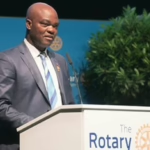Anthony Ujah Calls Time on 15-Year Football Journey Amid Injury Struggles
On Friday, Anthony Ujah, the former Nigerian international striker, officially declared his retirement from professional football. The announcement came through a heartfelt message posted on X, the social media platform formerly known as Twitter, where Ujah expressed his decision to end his playing career immediately.
Reflecting on a Distinguished 15-Year Career
Ujah’s football journey spanned over a decade and a half, during which he made significant contributions to clubs across Europe and Asia, as well as the Nigerian national team, the Super Eagles. Known for his agility and goal-scoring prowess, he became a fan favorite and a respected figure in Nigerian football circles.
Injury Challenges Lead to Early Retirement
Despite his talent and dedication, persistent injury setbacks increasingly hampered Ujah’s ability to perform at the highest level. These physical challenges ultimately influenced his decision to step away from the sport. His retirement highlights the often-unseen toll that injuries can take on professional athletes, a reality faced by many footballers worldwide.
Legacy and Impact on Nigerian Football
Throughout his career, Ujah earned numerous caps for the Super Eagles, contributing to Nigeria’s campaigns in various international tournaments. His commitment and professionalism have inspired younger generations of Nigerian footballers aiming to make their mark both domestically and abroad.
As of 2024, Nigerian football continues to evolve, with emerging talents building on the foundation laid by players like Ujah. His retirement marks the end of an era but also serves as a reminder of the resilience required to sustain a lengthy career in competitive sports.
Looking Ahead: Life Beyond the Pitch
While Ujah steps away from active play, many former athletes transition into coaching, mentorship, or sports administration roles. Given his experience and insight, Ujah is well-positioned to contribute to Nigerian football’s growth off the field, potentially shaping future stars and influencing the sport’s development in the region.


















0 Comments